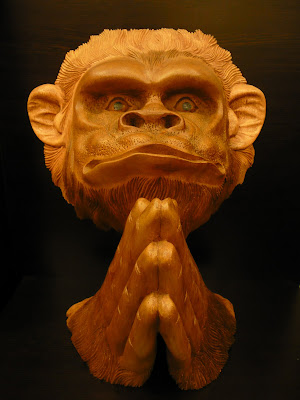2.30 am this morning (Monday 3 Mar), cruising at 36,000 feet, halfway through my return from Shenzhen to KL, my boss seated next to me said “nose is me”.
“Is it?” I asked. “That is interesting!”
He was referring to the ancient time when the Chinese would point to his nose indicating “this is me.” Thus the Chinese character 自 [zì] is actually a picture of a nose. Since a nose breathe, it also mean” breath” when combined with other character components such as –
自 (zì) 'nose' over 心 (xīn) 'heart' = 息 [xī] breath, or
自 (zì) 'nose' over 犬 (quǎn) 'dog' = 臭 [chòu] stinking.
I don’t think I need to describe to you how a wet dog smells, do I?
But it is not that simple, for it never was. For 臭 can be read as [chòu] bad smell or [xiù] sniff, smell. If "xiu", we can used our nose to smell both the wet dog or the sweet fragrance of the wild rose. Did I lose you there? No surprise. Welcome to a language devised by the devil to torment us, English speakers. I could ignore it if only it were not so beautiful...
“Is it?” I asked. “That is interesting!”
He was referring to the ancient time when the Chinese would point to his nose indicating “this is me.” Thus the Chinese character 自 [zì] is actually a picture of a nose. Since a nose breathe, it also mean” breath” when combined with other character components such as –
自 (zì) 'nose' over 心 (xīn) 'heart' = 息 [xī] breath, or
自 (zì) 'nose' over 犬 (quǎn) 'dog' = 臭 [chòu] stinking.
I don’t think I need to describe to you how a wet dog smells, do I?
But it is not that simple, for it never was. For 臭 can be read as [chòu] bad smell or [xiù] sniff, smell. If "xiu", we can used our nose to smell both the wet dog or the sweet fragrance of the wild rose. Did I lose you there? No surprise. Welcome to a language devised by the devil to torment us, English speakers. I could ignore it if only it were not so beautiful...






